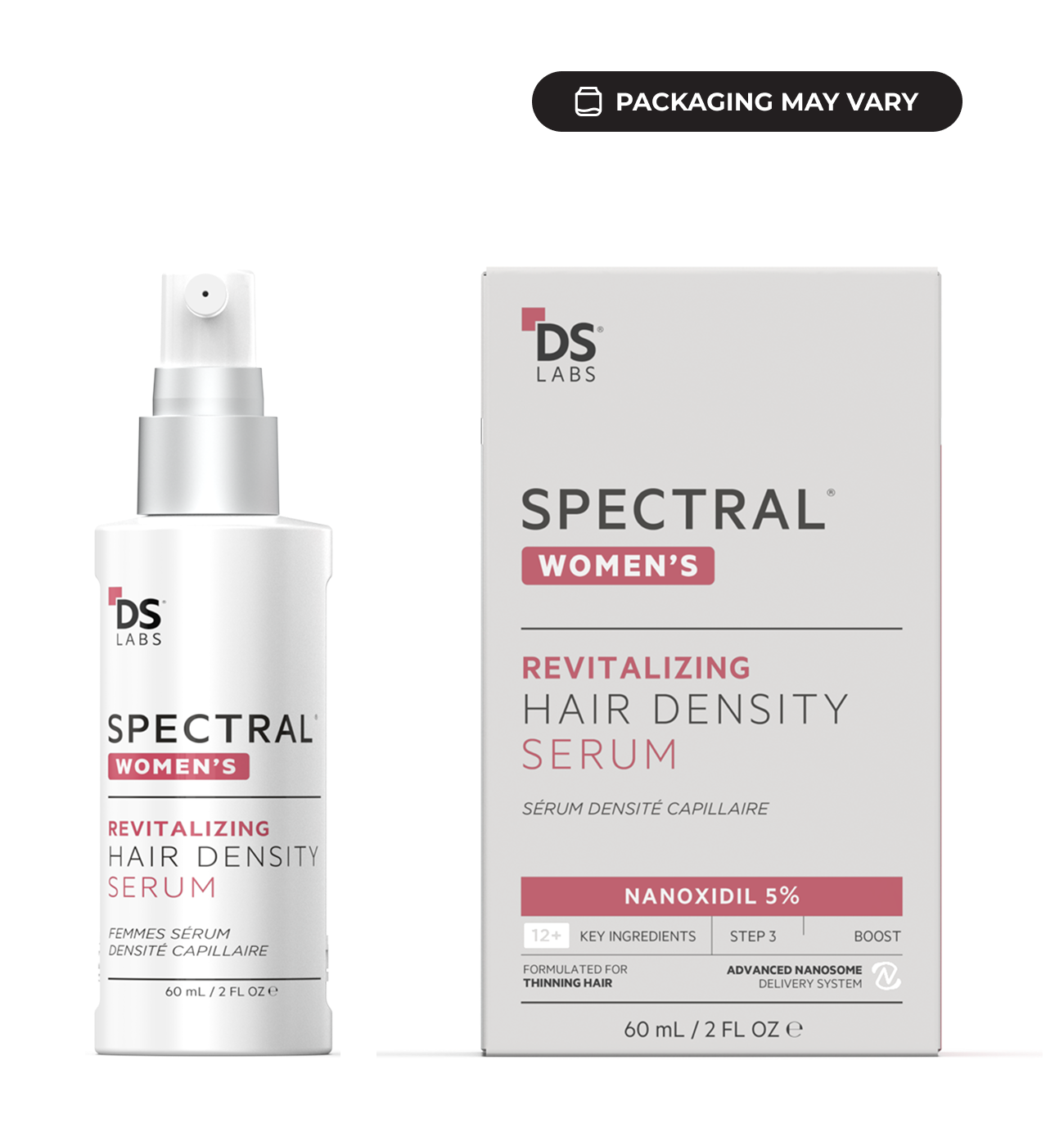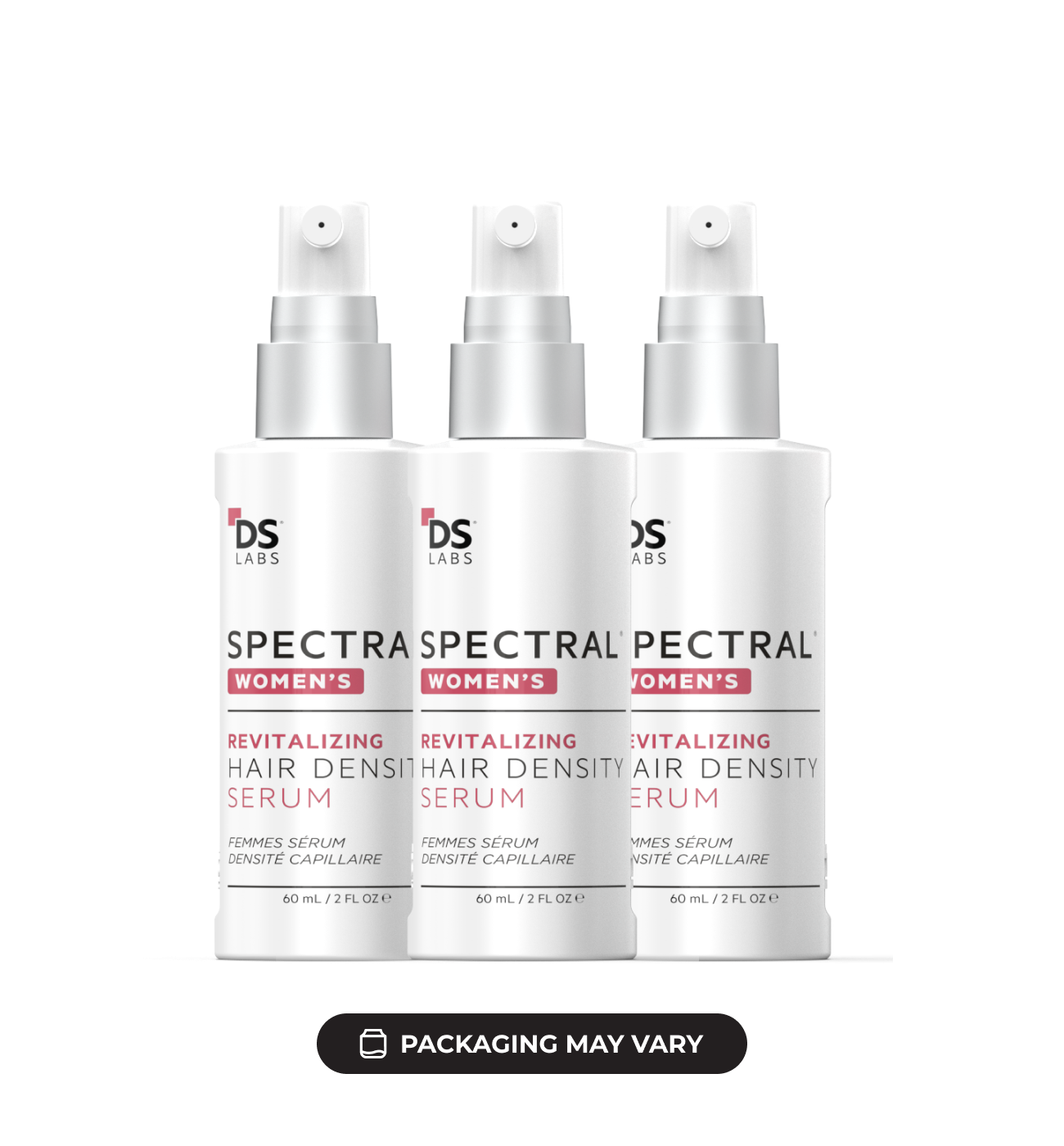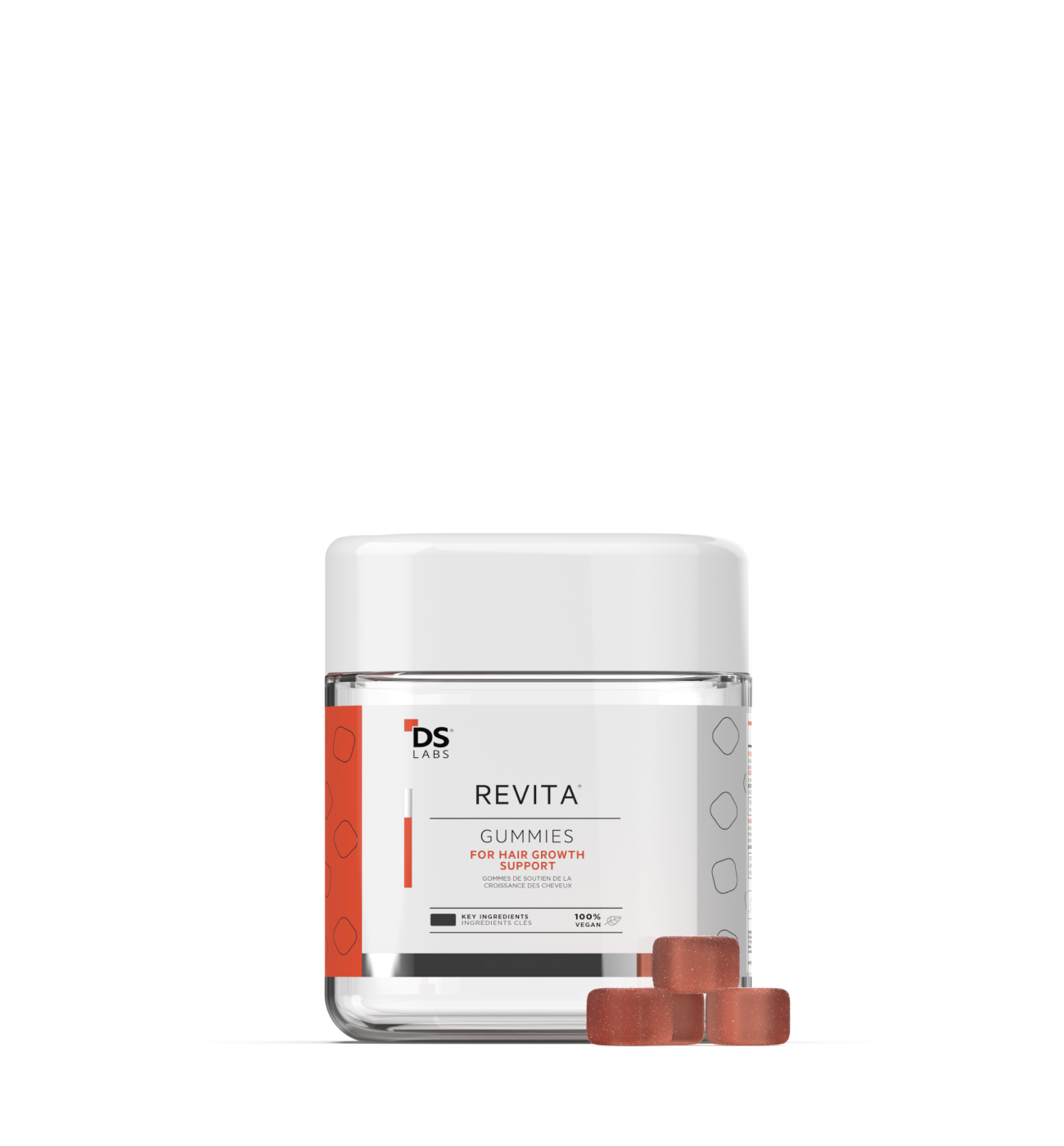Menopause is a natural part of a woman's life, but it can also bring with it some unwanted changes. One of these changes is hair loss, which is caused by hormonal changes in the body. Specifically, a decrease in estrogen levels can lead to thinner, more brittle hair, and ultimately hair loss. This can be a difficult experience for many women, but there are solutions available to help alleviate the effects of menopause on hair loss.
What We Know
Clinical studies have shown that hair loss during menopause is a common problem, affecting up to 50% of women. In a study published in the Journal of the American Academy of Dermatology, researchers found that menopausal women experienced a significant increase in hair loss compared to premenopausal women. Another study published in the Journal of Cosmetic Dermatology found that women who experienced menopause-related hair loss had significantly lower levels of estrogen and progesterone in their bodies.
What Can Help
Hair loss during menopause can be distressing for many women, but there are steps that can be taken to help alleviate the symptoms. One solution is to use products that are specifically designed to target hair loss. DS Laboratories has developed a line of products specifically for women experiencing hair loss during menopause. These products contain ingredients such as biotin, copper peptides, and caffeine, which have been shown to improve hair growth and reduce hair loss.
Biotin is a B vitamin that plays a crucial role in hair growth. Studies have shown that biotin supplementation can increase hair growth and improve hair thickness in women with hair loss. Copper peptides are another ingredient found in DS Laboratories products that have been shown to improve hair growth. A study published in the International Journal of Trichology found that copper peptides increased hair growth in women with androgenetic alopecia, a common form of hair loss.
Caffeine is another ingredient found in DS Laboratories products that has been shown to improve hair growth. A study published in the International Journal of Trichology found that caffeine increased hair growth and reduced hair loss in men and women with androgenetic alopecia.
In addition to using products specifically designed for menopause-related hair loss, there are other steps women can take to improve the health of their hair. Eating a balanced diet, staying hydrated, and reducing stress can all help improve the health of hair. Additionally, women can talk to their healthcare provider about hormone replacement therapy, which can help alleviate some of the symptoms of menopause, including hair loss.
In Conclusion
It's important to note that menopause-related hair loss is a natural part of the aging process and not a sign of poor health. However, if women are experiencing hair loss during menopause, it can be distressing and affect their self-esteem. Therefore, it's essential to take steps to address the issue and seek solutions that work for them.
One of the benefits of using DS Laboratories products is that they are specifically designed for women experiencing hair loss during menopause. These products contain a range of ingredients that have been shown to improve hair growth and reduce hair loss. In addition to biotin, copper peptides, and caffeine, DS Laboratories products contain other beneficial ingredients such as niacinamide, which improves blood circulation to the scalp, and saw palmetto, which blocks the formation of DHT, a hormone that can contribute to hair loss.
When using DS Laboratories products, it's important to follow the instructions carefully to achieve the best results. These products are designed to be used regularly over a period of time to achieve optimal results. Additionally, it's important to be patient and consistent when using these products, as it can take several weeks or even months to see a noticeable improvement in hair growth and thickness.















